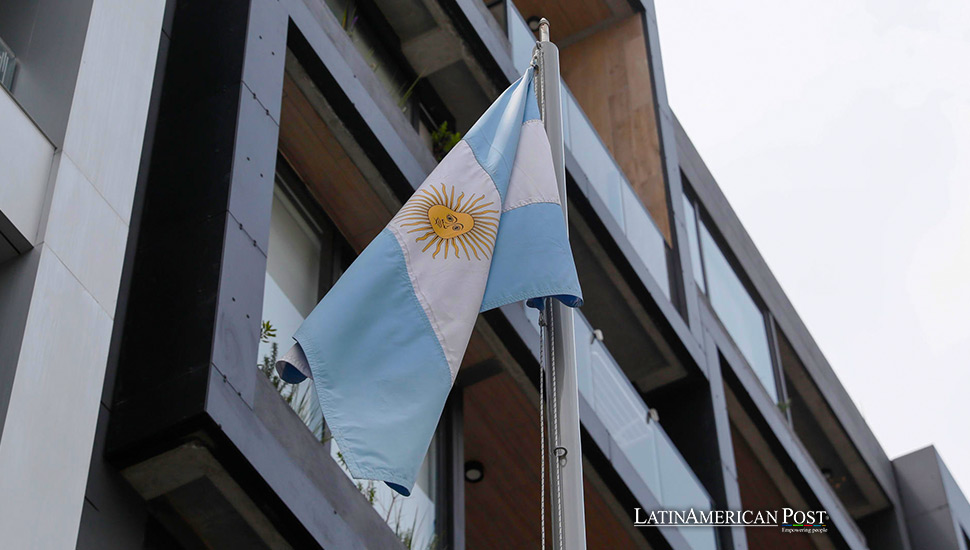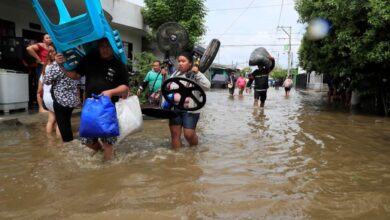Colombia in New Diplomatic Tensions Over Milei’s Comments

Argentina’s President Javier Milei’s inflammatory remarks about Colombian President Gustavo Petro have sparked a diplomatic row, leading to the expulsion of Argentine diplomats from Colombia. This highlights the volatile nature of political discourse in Latin America.
The recent diplomatic fallout between Colombia and Argentina, triggered by incendiary comments by Argentine President Javier Milei, underscores the fragile nature of political relations in Latin America. Milei’s characterization of Colombian President Gustavo Petro as a “murdering terrorist” during a CNN interview has not only strained bilateral ties but also spotlighted the region’s tense political landscape.
Milei, known for his controversial and often abrasive rhetoric, criticized Mexican President Andrés Manuel López Obrador, labeling him “ignorant.” While not unprecedented in the region’s political arena, this pattern of personal attacks has raised concerns about the escalating nature of political discourse and its potential to undermine diplomatic ties.
The incident has resonated throughout Latin America, drawing attention to the broader implications of such confrontational rhetoric in a region marked by historical political volatility and ideological divisions. Colombia’s decision to expel an unspecified number of Argentine diplomats in response to Milei’s remarks signals a move beyond mere verbal condemnation, reflecting the gravity with which these comments have been received.
Historical Sensitivities and Political Ramifications
Milei’s critique of Petro, referencing his past as a former rebel fighter with the M-19 guerrilla group, taps into more profound historical and political sensitivities in Colombia. While Petro’s involvement with the M-19, which demobilized over three decades ago, is a matter of public record, the Argentine president’s framing of these past activities in a derogatory manner has ignited a firestorm of controversy, particularly given Petro’s current role as Colombia’s first left-wing president.
The controversy extends beyond Colombia and Argentina, touching on broader regional dynamics. Milei’s disparaging remarks about Pope Francis last year, though later downplayed during a Vatican meeting, hint at a pattern of behavior that challenges the norms of diplomatic etiquette and political discourse in Latin America.
The reaction in Mexico, where presidential candidates united in defense of López Obrador against Milei’s criticisms, illustrates the ripple effect of such statements across the continent. Milei’s contentious language has inadvertently fostered a sense of solidarity among leaders who, despite their political differences, have rallied against his derogatory assessments.
Navigating Diplomatic Terrain
The situation highlights the intricate web of political and diplomatic relations in Latin America, where historical grievances, ideological conflicts, and personal rivalries often intersect. The expulsion of Argentine diplomats from Colombia is a stark reminder of how quickly and decisively political disputes can escalate, affecting both bilateral relations and the broader regional diplomatic landscape.
Moreover, this incident raises questions about the impact of political leadership styles on international relations. Milei’s approach, characterized by direct and often confrontational rhetoric, contrasts with the more measured tones traditionally favored in diplomatic interactions. This shift reflects changing political norms in the region, where populist and outspoken leaders are gaining prominence, challenging established diplomatic protocols.
Therefore, the ongoing diplomatic rift between Colombia and Argentina is not just a bilateral issue but a manifestation of deeper regional tensions and a changing political ethos. It highlights the need for careful navigation of the complex and often sensitive terrain of international relations in Latin America, where historical legacies, political ideologies, and personal dynamics can quickly transform verbal jousting into diplomatic crises.
In the aftermath of this diplomatic upheaval, the focus will likely shift to the long-term implications for Colombian-Argentine relations and the broader Latin American diplomatic environment. The incident is a cautionary tale about the power of words in international politics and the delicate balance between freedom of expression and respect for diplomatic norms.
Also read: Colombia in a Diplomatic Quandary Following Petro’s Israel Ultimatum
The expulsion of Argentine diplomats from Colombia in response to President Milei’s contentious remarks is a watershed moment in Latin American politics. It underscores the challenges of maintaining diplomatic comity in an increasingly polarized and provocative political rhetoric era. As Latin America navigates this evolving landscape, the lessons learned from this incident will be crucial in shaping the future of diplomatic engagement and political discourse in the region.




